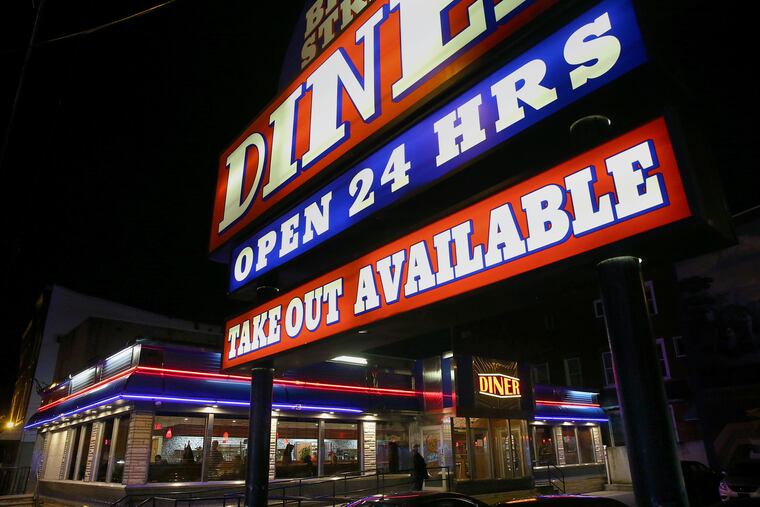Labor official’s goof shows Philly’s pro-worker growing pains
In a Time magazine story exploring what it's like to be a low-wage waitress at a South Philadelphia diner, a city labor official suggests that some tipped workers might just be bad at their jobs.

Low-wage service workers who rely on tips work in some of the fastest-growing occupations in the country.
And, as a recent Time cover story by Alana Semuels and Malcolm Burnley explored at South Philadelphia’s Broad Street Diner, they have it rough: Unpredictable income. Sexual harassment. Governments that barely enforce laws designed to protect them — or perhaps believe that the workers have brought this on themselves.
From the article:
Oof.
For an administration that’s trying to build a reputation as supporting the low-wage workers who dominate the city’s workforce, it was a tough paragraph to read.
Rich Lazer, who runs the Mayor’s Office of Labor, was quick to dismiss Citron’s comments, which he described as “made in bad taste.”
“That is extremely far from what this office feels," Lazer said. “We hold all our worker protection laws at the highest level and make sure we take every complaint and every investigation seriously.”
>> READ MORE: How Philly’s office to protect workers is changing after a sputtering start
Lazer also bristled at the Time story’s suggestion that Philadelphia cared more about ensuring fair wages for construction workers on public projects and government workers than fighting claims of wage theft for low-wage workers. Philly, he said, is on the front lines of mandating wages for security guards working for institutions that receive city money. (A union is currently appealing to the city to enforce this law for 1,400 security guards it says should have gotten a raise by now.)
The Time story’s not wrong. The labor enforcement office does have a staff of only four; what’s more, before 2019, the four-year-old office was fielding about eight wage theft complaints a year. Whereas Seattle, a smaller city with the country’s most robust labor enforcement office, investigated more than 60 wage theft complaints in 2018 and was still not able to keep up with demand.
What Lazer wants is acknowledgment that the city has made progress. Supporting low-wage workers was not a priority of the previous Nutter administration, he said. The Mayor’s Office of Labor is a Kenney administration creation — the office’s functions previously bounced around different agencies. And, thanks in part to organizing from local labor groups, the office has steadily grown in funding and visibility. This year, it hired two people — director Amanda Shimko and outreach manager Candace Chewning — from nurses union PASNAP to bolster the office. There have been early talks, too, on developing a standalone Office of Labor so that it’s not contingent on a mayor’s interest in the issue.
In other words, in the past a comment like the one in the Time story might have gone unnoticed.
>> READ MORE: Why 1,400 Philly security guards haven’t gotten a raise, despite a city law requiring it
The Inquirer is one of 21 news organizations producing Broke in Philly, a collaborative reporting project on solutions to poverty and the city’s push toward economic justice. See all of our reporting at brokeinphilly.org.